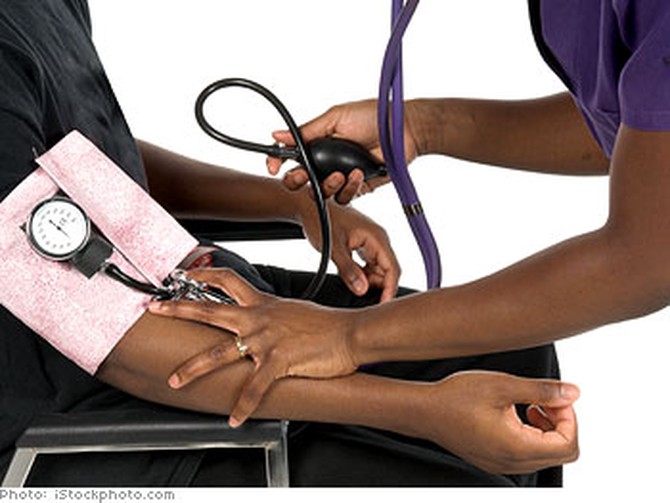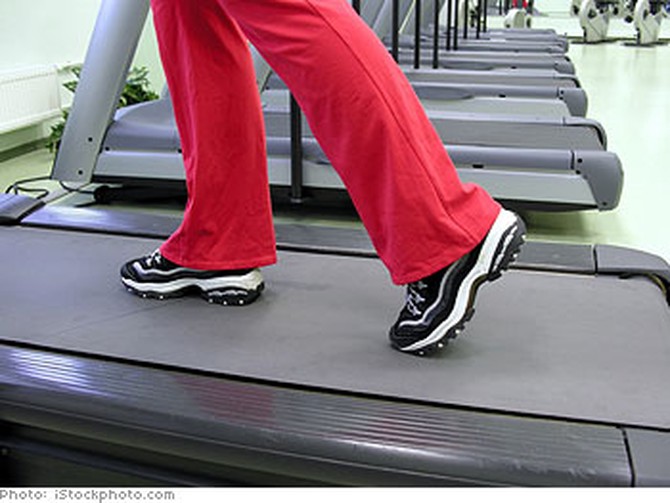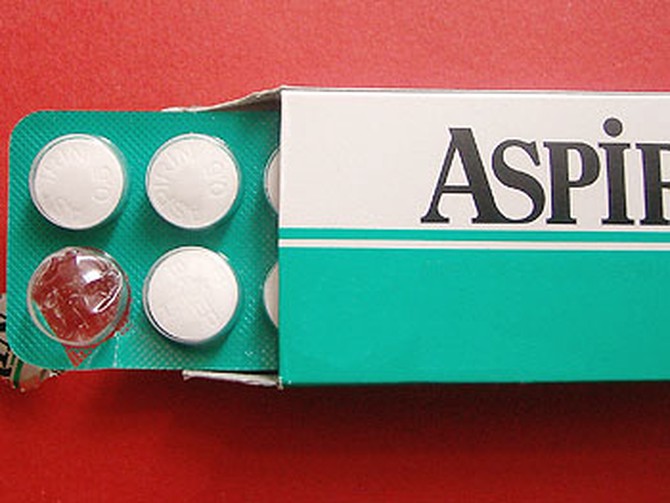Heart Smarts

Get at least seven hours of sleep.
That's per night, not week. And men—a needier breed—require eight. The benefit? Ask us if you still need an explanation when you wake up in the morning.
That's per night, not week. And men—a needier breed—require eight. The benefit? Ask us if you still need an explanation when you wake up in the morning.

Know your blood pressure.
What's the fastest way to age an artery? Subject it to high blood pressure, which will harden it like a garden hose that's been left out in the sun. A range of 120/80 to 130/85 mmHg is considered below the hypertension point, but it's not ideal. In fact, reducing your blood pressure from 130/85 to 115/76 can make your body up to ten years younger. There's no data to show that using drugs to lower blood pressure offers the full youth effect. So for now, you guessed it: Exercise, lose weight, reduce stress. The good news is the benefits from doing physical activity are just about instantaneous.
What's the fastest way to age an artery? Subject it to high blood pressure, which will harden it like a garden hose that's been left out in the sun. A range of 120/80 to 130/85 mmHg is considered below the hypertension point, but it's not ideal. In fact, reducing your blood pressure from 130/85 to 115/76 can make your body up to ten years younger. There's no data to show that using drugs to lower blood pressure offers the full youth effect. So for now, you guessed it: Exercise, lose weight, reduce stress. The good news is the benefits from doing physical activity are just about instantaneous.

Avoid smoky bars.
Don't let people puff away in your space. An hour of passive smoke can cause the same amount of aging as having two to four cigarettes. (If you're doing the smoking, we're not going to bother nagging. You know what to do.)
Don't let people puff away in your space. An hour of passive smoke can cause the same amount of aging as having two to four cigarettes. (If you're doing the smoking, we're not going to bother nagging. You know what to do.)

Learn something new. Love something you do.
Continuing to challenge the brain and being passionately engaged increases neuroplasticity, prompting the growth of extra connections. If you then have an injury like a stroke, the brain is better able to compensate for the trauma and lessen its effects.
Continuing to challenge the brain and being passionately engaged increases neuroplasticity, prompting the growth of extra connections. If you then have an injury like a stroke, the brain is better able to compensate for the trauma and lessen its effects.

Walk 30 minutes every day.
One study on men suggests that for every hour of exercise, you get two extra hours of life. Rather than the "30 minutes," though, fixate on the "every day"—moving regularly is the active ingredient in exercise's powerful antiaging effect.
One study on men suggests that for every hour of exercise, you get two extra hours of life. Rather than the "30 minutes," though, fixate on the "every day"—moving regularly is the active ingredient in exercise's powerful antiaging effect.

Take half an aspirin daily.
Yes, those big studies came out last year saying low-dose aspirin does pretty much zilch to prevent heart attacks and cancer in women, but we still have little bits and pieces of the puzzle coming in—and the evidence is strong for aspirin's reducing the risk of stroke. Let's put it this way: People in the know take half an aspirin a day. If you're over 40, we recommend half a 325 milligram tablet (or two baby aspirins), with half a glass of warm water both before and after you swallow so that you're less likely to irritate your stomach. Check with your doctor to make sure you are aspirin tolerant.
Yes, those big studies came out last year saying low-dose aspirin does pretty much zilch to prevent heart attacks and cancer in women, but we still have little bits and pieces of the puzzle coming in—and the evidence is strong for aspirin's reducing the risk of stroke. Let's put it this way: People in the know take half an aspirin a day. If you're over 40, we recommend half a 325 milligram tablet (or two baby aspirins), with half a glass of warm water both before and after you swallow so that you're less likely to irritate your stomach. Check with your doctor to make sure you are aspirin tolerant.

Eat fish three times a week.
It may not be just the omega-3s in the oil that keep the heart and arteries humming along; a number of animal studies have also indicated that fish protein provides a separate boost to cardiovascular health. Eat a variety of low-mercury fish (such as wild salmon, catfish, or tilapia). And if you're not nuts about seafood, an ounce of walnuts a day will give you a good dose of omega-3s.
It may not be just the omega-3s in the oil that keep the heart and arteries humming along; a number of animal studies have also indicated that fish protein provides a separate boost to cardiovascular health. Eat a variety of low-mercury fish (such as wild salmon, catfish, or tilapia). And if you're not nuts about seafood, an ounce of walnuts a day will give you a good dose of omega-3s.

Live within your means.
Feeling out of control financially can cost you not only sleep (see number one) but also arterial health due to chronic stress. A bankruptcy can put miles on your body's odometer.
Feeling out of control financially can cost you not only sleep (see number one) but also arterial health due to chronic stress. A bankruptcy can put miles on your body's odometer.

Floss and brush.
Periodontal disease, such as gingivitis, does not affect just the gums. Any chronic infection stimulates your body to defend itself, and part of the response is to protect against bleeding with an increase in clotting tendency—a recipe for heart attack.
Periodontal disease, such as gingivitis, does not affect just the gums. Any chronic infection stimulates your body to defend itself, and part of the response is to protect against bleeding with an increase in clotting tendency—a recipe for heart attack.

Don't leave home without a stress-reducing technique—or several.
Deep breathing, meditation, yoga, running, knitting—you can't have too many ways to defuse stress. Even scrunching up your face as tightly as you can for 15 seconds and then releasing can deflect the pressure before it gets to you and starts wearing and tearing your cells.
Deep breathing, meditation, yoga, running, knitting—you can't have too many ways to defuse stress. Even scrunching up your face as tightly as you can for 15 seconds and then releasing can deflect the pressure before it gets to you and starts wearing and tearing your cells.
From the October 2006 issue of O, The Oprah Magazine

